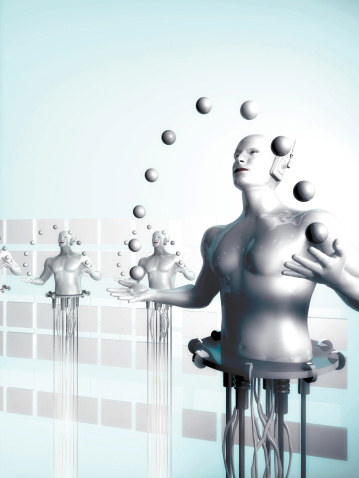
|
A recent posting on Facebook asked the hive mind what scams have been practiced so long that nobody remembers they are scams. And, in this political season, one person predictably answered, “Capitalism.”
Oh, laddie! Think bigger—and harder. Capitalism is not a hoax that rich people thought up to get more of other people’s time and money. Capitalism is the way things get done in a modern, dissociative, non-small world, and it’s been operational since ancient times. Capitalism is the cobbler taking out a loan to buy leather. It’s the shipbuilder asking his friends—and sometimes strangers—to put up the money to buy land and wood for his venture, with the promise to pay them back when he launches his first vessel and sells it.
The concept of the corporation goes back to ancient Rome, and the word comes from the Latin for “body.” The first corporations were the collegia, where for example groups of single men who had come to the city to find work pooled their money to fund and operate dining halls so they would not have to cook for themselves and would have a place to eat. In the Middle Ages, the word came to mean groups of hopeful scholars who came together to acquire space and hire teachers so they could study academic subjects.
To think of capitalism and corporate activity as a scam is like thinking agriculture and technology are scams. One would have to decide it was a delusion to plant seeds and expect them to grow, or to build machines and expect them to function as intended. These are not scams—purposeful designs by one group of people to snare the imagination and gain the cooperation of another group—but simply the way things have worked out in human history.
So, what would be a scam so old and encompassing that nobody noticed? And think big here!
Scams are created and offered by people who put together a vision, a hope, an interpretation of reality in exchange for other people’s support, allegiance, love, or money and then return to them … nothing.
One of the oldest human scams is the belief that certain classes of people are better than others, more knowledgeable, more fit to command—and born that way. These would be the kings, lords and nobles, patricians, landed gentry, old families, old wealth. They have only as much respect and political power as people will give them—which was a lot in old Europe and not so much in modern America. In this country, we’ve seen the wealthiest families—think of the Astors, Morgans, Kaisers, and Kennedys—slowly drift back into obscurity. The first generation makes the wealth, the second generation administers it, the third spends it, and the fourth remembers it. But if you can get people to believe that your name alone is worth the price of a drink, then welcome to it.
A more modern scam is the selling of various kinds of utopias. These range from the hippie communes of the Sixties back to the original communalistic theories of Karl Marx. Communalism presents itself as caring and giving and sharing—and that works in small groups operating under potentially hazardous or adverse circumstances. Think of the nuclear family that is your “hostage to fortune,” or a small tribe in the wilderness, or an Israeli kibbutz. Without the adverse circumstances, the cooperative milieu falls apart. The Transcendentalist communes of the 1830s and the hippie communes of the 1960s failed because some of the Transcendentalists thought they were contributing to the common pot just by writing bright essays instead of slopping the pigs, and some of the hippies thought they were contributing by smoking dope and selling weed instead of milking the cow.
And communism simply doesn’t work on a national scale. It can’t work as an economic theory, because it’s not really about economics. Economics, for anyone who’s ever taken a basic course, is about establishing the value of and engaging in the exchange of goods and services among strangers. There you are dealing with supply and demand, the valuation of substitute markers like money, and varying levels of effort over time. That is how groups of humans arrange their activities. Giving everything you can and getting back only what someone else determines that you need are not economics. Anyone who tries to sell you on a utopia of caring and sharing—follow our prescriptions and you will achieve nirvana—is really selling you on willing submission to the control of others. That, for most people, is both inhuman and antihuman.1
Other political theories can also be scams. Think of the National Socialists in Germany between the wars, who sold their population on ideas of racial purity, the banishment of an ancient and evil oppressor, and the glory of a vibrant political consciousness, all for their willing submission to whatever the party decreed—which turned out to be both inhuman and antihuman. And the result was horror and global war.
Speaking of nirvana, perhaps the oldest scam in human history is what happens to us after death. Here I am revealing myself once again as an atheist. It’s not that I think I’m better than you if you are a believer. I simply lack the gene or nerve impulse to believe for myself. And as much as I value human life, I—ahem—do not believe we are either eternal or immutable. I believe that we human beings—like all other life on this planet—are the product of undirected evolution, with mutations in our genetic inheritance governing our adaptability to changes in our environment, and with the test of any genetic modification being its usefulness under current conditions. No great spirit made me, is watching out for me, or is directing my steps—except in so far as I hold notions of goodness, propriety, and wisdom in my mind and intention. And no such being stands ready at my death to welcome me home to any kind of eternal bliss, paradise, or heaven.
Nirvana was the Buddha’s response to the eternal return, the cycle of continual rebirth that was embedded in his ancestral Hindu culture. He found the constant juggling with karma—do good in this life and be reborn on a higher plane in the next life; do evil now and suffer for it next time—as oppressive. The whole point of Gautama’s original teaching was that by living as neutral a life as possible, accumulating neither good nor bad karma, you can get off this cycle. And then, when you die, you will simply go out, like a candle. That would be the Buddha’s nirvana—not a place but a release. It makes sense if your cultural tradition was an eternity of coming back to human suffering and judgment under an uncontestable and inhuman rule.
But I don’t look forward to being reborn as anything. And after twenty, forty, sixty, eighty, or even ninety years as a human being on this Earth, I don’t expect to take my mind and memory, my innate personality, and go off to an eternity in a heaven or hell, eternal bliss or eternal suffering. I think that, at the end of a useful life, making my way in the world and caring for friends and family, at my death I will simply go out, like a candle. My mind and knowledge, my personality, will dissipate in the disruption of my neural synapses. My body will cease moving, and the lysosomes embedded in each cell will begin enzymatically breaking down the cell’s chemical structure, helping the ever-present bacteria dispose of my physical being. Much as I value human life, at the end of my time on Earth I will have no more usefulness, consciousness, or awareness than a dead squirrel smashed flat on the road. That’s not a nice image, I know—but at that point, I will be beyond caring.
It may be offensive to classify the various competing visions of an afterlife as a scam. Certainly, many people fear death, cannot imagine their own sudden absence, and take comfort in thoughts of eternal bliss and reunion with their departed loved ones. The notion of an afterlife—which usually adheres to some kind of moral teaching and proposed course of thought and belief—can be considered the ultimate carrot enticing you to follow this religion or that. And certainly, the idea of a person having no moral understanding and no personal guide to thought and belief is the grim depiction of a soulless, possibly hedonistic, likely cruel and dangerous human being.2
But yes, in my terms—private and privileged as they may be—belief in any kind of existence beyond this single life is one of the oldest scams, so old that most people don’t think of it as a scam at all. Sorry about that.
1. For those who say that true communism or true socialism hasn’t been tried yet … well, true perpetual motion hasn’t been tried yet, either—because it doesn’t exist in the real world.
2. And yes, I know—and freely acknowledge—that I follow the embedded values of the Judeo-Christian civilization into which I was born and raised. I just don’t happen to believe in the supreme and eternal being who supposedly sits at the center of it.
